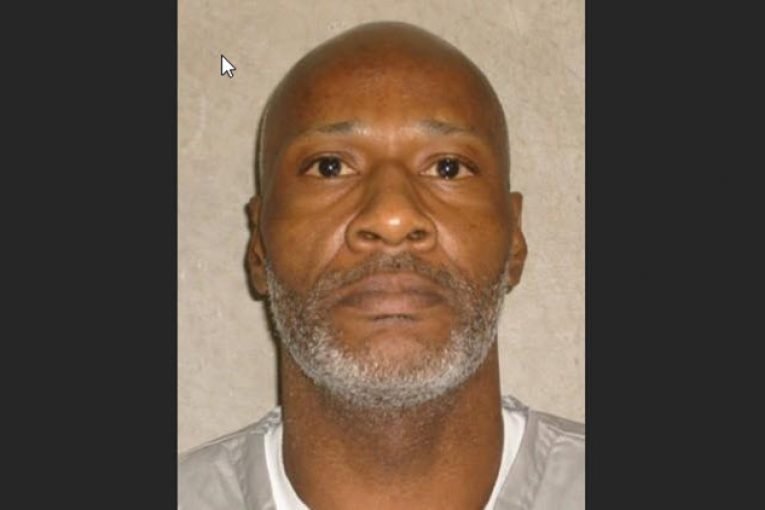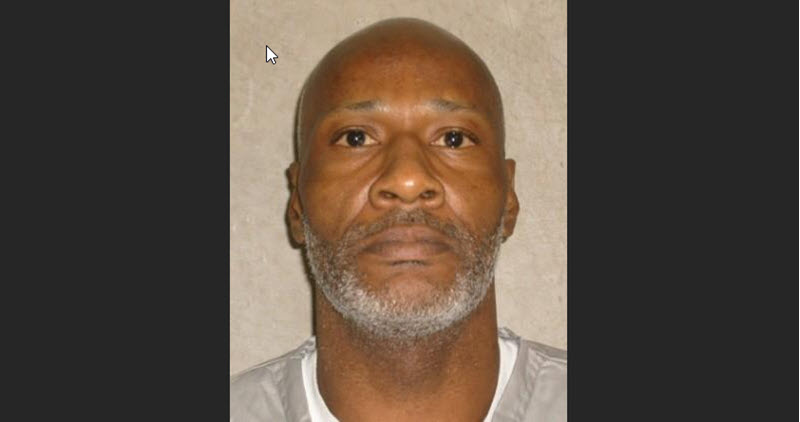

Special to the Vanguard
Oklahoma City, OK – Seven years ago Oklahoma brutally and horrifically botched the execution of Clayton Lockett. The next year, they executed Charles Warner in an execution that was problematic to begin with and used the wrong lethal drug to boot.
This week, John Marion Grant is scheduled to be the first person executed in the state since 2015.
Pointing to the decades of abuse and neglect Grant suffered in state-run institutions beginning as a child, Grant’s attorneys filed a petition for clemency to the Oklahoma Pardon and Parole Board. The petition explains that the extensive abuse and abandonment at the hands of state actors culminated in Grant’s tragic killing of a prison employee who had recently ended a personal relationship with him.
“John Grant never had a chance in life due to the severe abuse he suffered first at the hands of his mother and later in state-run institutions in Oklahoma whose horrific mistreatments are a well-documented scandal,” Sarah Jernigan, attorney for John Grant said. “Yet he is deeply remorseful for his actions and has worked to redeem himself while incarcerated. We are hopeful that Oklahoma will give him a second chance by showing mercy, allowing him to live the remainder of his life in prison instead of being executed.”
The petition describes Grant’s profound remorse, characterizing him as a man who “has fervently wrestled with his own actions and failings since the time of [his] crime, seeking to understand and better himself more so than any other client I have represented.”
Grant’s Clemency Petition is Available Here: https://tinyurl.com/vttdbfk
Grant was born into abject poverty to a single mother. His mother was overwhelmed and unavailable to her many children. When he stole food and clothing at the age of 12 to provide for his siblings, he was placed in state juvenile institutions. These very institutions have been the subject of “a widespread, nationally publicized scandal” that became known as “Oklahoma Shame” due to the horrific mistreatment of the children in their care, including Grant. “The State helped to create a broken man.”
Grant was born in 1961 to a single mother who struggled to support her nine children, of which he was the sixth. They lived in a home with dirt floors and no running water. As an infant, Grant’s primary caretaker was his six-year-old sister. Their mother “didn’t hardly talk to us,” one of his siblings recalls, adding “I don’t think she liked us.”
The children remember being beaten with switches, extension cords, and even the tracks from their Hot Wheels cars. Whippings came without warning, sometimes in the middle of the night while they were sleeping. Documents from the Oklahoma Department of Corrections note Grant has “scars over all [his] body.”
As bad as things were at home, they were worse when, at age twelve, Grant was sent away, first to the Missionary Cosmopolitan House and later to the Boley State School for Boys and the Helena State School for Boys.
As has been extensively documented, “state employees were subjecting abandoned, orphaned, emotionally disturbed and delinquent children to a Dickensian kind of terror” in these facilities.
Whippings, rapes, and assaults were routinely inflicted on the children in these institutions, including Grant, who was there during the height of the abuse in the late 1970s.
According to the petition, “Countless stories were uncovered of beatings by staff and days and weeks of solitary confinement as a means of punishment.”
ABC News provided detailed reporting on this abuse in the Peabody Award-winning documentary “Throwaway Kids.” Civil rights litigation against some of those involved, as well as U.S. Department of Justice investigations, confirm horrific abuses at the specific facilities where Grant was held.
His attorneys, argue, much of the abuse, however, was never documented because “secrecy was an essential component of the corrupt system,” allowing it to persist.
“Having victimized Grant in youth facilities, Oklahoma sent him to adult prison when he was still a minor,” his attorneys argue. “Oklahoma again failed Grant by appointing him incompetent capital defense attorneys.”
According to the petition, it outlines the incompetence of his trial counsel, who did not investigate important aspects of either the crime or their client’s history. One of those lawyers has since been suspended from practice due to her unprofessional conduct, including self-medicating her then-undiagnosed bipolar disorder with alcohol and drugs.
The petition also describes what happened after the U.S. Supreme Court directed the Oklahoma Court of Criminal Appeals (OCCA) to reconsider, in light of its then-recent decision in Wiggins v. Smith, whether trial counsel’s failure to investigate and present evidence of Grant’s horrific childhood affected the outcome of his trial.
Over the scathing dissent of Judge Charles Chapel, the OCCA concluded that Grant had “chosen” his childhood, and that learning of his life history would not have made a difference to even one juror.
The petition includes statements from two jurors who say that if trial counsel had presented available evidence about the crime or Grant’s life history, they might have voted for a life sentence.
“The State should have been a fail-safe when Grant’s mother was unable or unwilling to provide the stability and care to Grant that is essential to every child. The State should have been a fail-safe in providing Grant with the mental health care and resources needed for so many of its inmate population,” the petition argues.
“The State should have been a fail-safe in providing competent representation to Grant once the years of abuse and dysfunction manifested in bad acts. Yet the State neglected – more accurately, abused – its duty to protect and rehabilitate.”
The petition argues, Oklahoma “has another opportunity to provide that fail safe in the form of clemency.”
